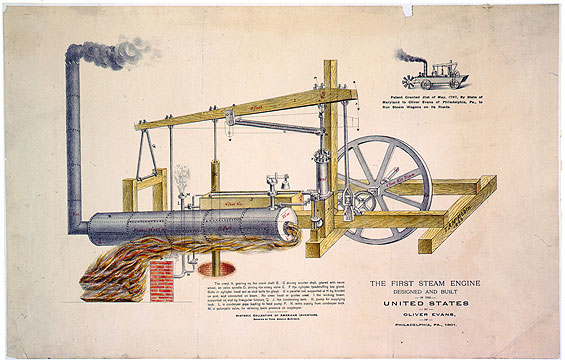In a column of the magazine OneWorld the authors reported about an event about circular economy. My attention was drawn by the following quote: “We are on the eve of the new industrial revolution”. Circular economy is getting more attention and is a growing phenomenon. This is a great development; circular economy has huge potential in order to move toward a sustainable world with a positive approach (since it focuses on “doing better” instead of “doing less”). The quote however made me think about the circular economy and the relation with the industrial revolution.
Acemoglu and Robinson explain the emergence of the industrial revolution in the book Why Nations Fail from an institutional perspective. The industrial revolution that took off in 18th century England laid the foundation for the prosperity in the rich countries in the world nowadays. Acemoglu and Robinson question why and how this could emerge specifically in England? Their answer lies in the existence of inclusive institutions, critical junctures and the creative destruction, which ultimately led to the invention of the steam engine. The industrial revolution led to reorganization in different sectors in England, e.g. infrastructure, industries and institutions. Subsequently the industrial revolution spread to other parts of the world.
For a circular economy we also need reorganizations and creative destruction (to replace the old technologies/systems with new ones). So it could indeed be stated that we are on the eve of the new industrial revolution. Then we should just wait for critical junctures at the right time and place to let the circular economy emerge. This suggests that steam engine for the circular economy needs to be invented and then everything will be fine.
However, the industrial revolution did not spread (yet) to all parts of the world, because of different historical events and critical junctures (also partly due to the European suppression in colonies, not to forget). It could be questioned if the industrial revolution first should take place in these parts of the world so that later the circular economy will emerge here too. This would suggest that all these developing countries would become very unsustainable first (because that was a huge side effect of the industrial revolution in the developed world). It might be better if the industrial revolution is prevented to emerge in these countries, preferably the emergence of circular economy should be stimulated here.
To go back to the quote in OneWorld, we are with the circular economy on the eve of the new industrial revolution. I think this is a bold statement. The industrial revolution emerged by a very complex set of developments and trends; on top of that contingency played an important role. We could learn from the emergence of the industrial revolution in order to shape the future. But maybe we should just wait for the steam engine of the circular economy to be invented.
Robinson, A. D., & Acemoglu, R. (2012). Why nations fail. The Origins of Power, Prosperity and Poverty, Nueva Y ork.
Roosmalen, R. & Burg, J. (2015) Circuleren. OneWorld Magazine.
